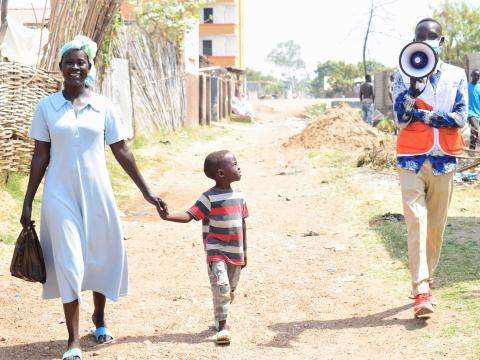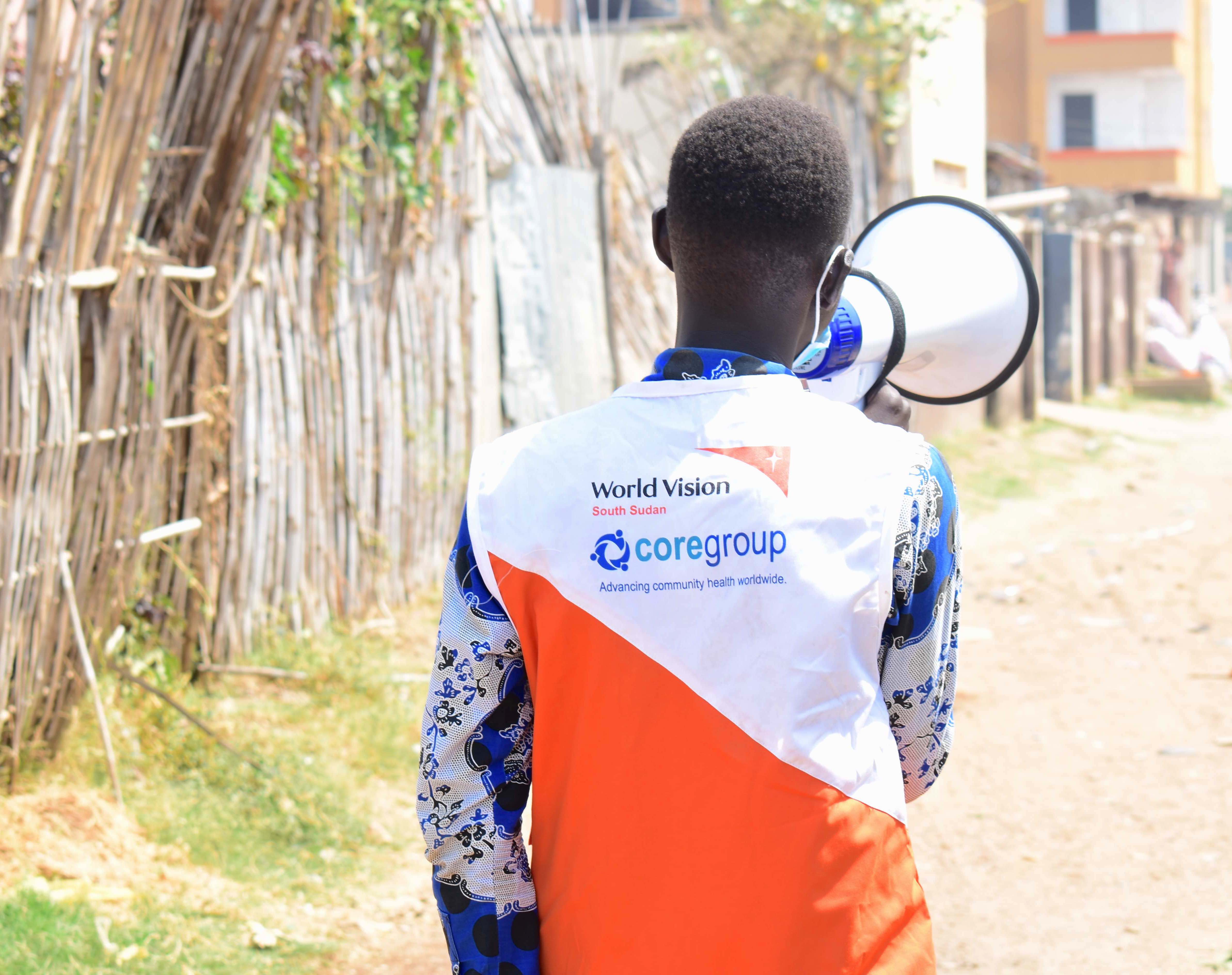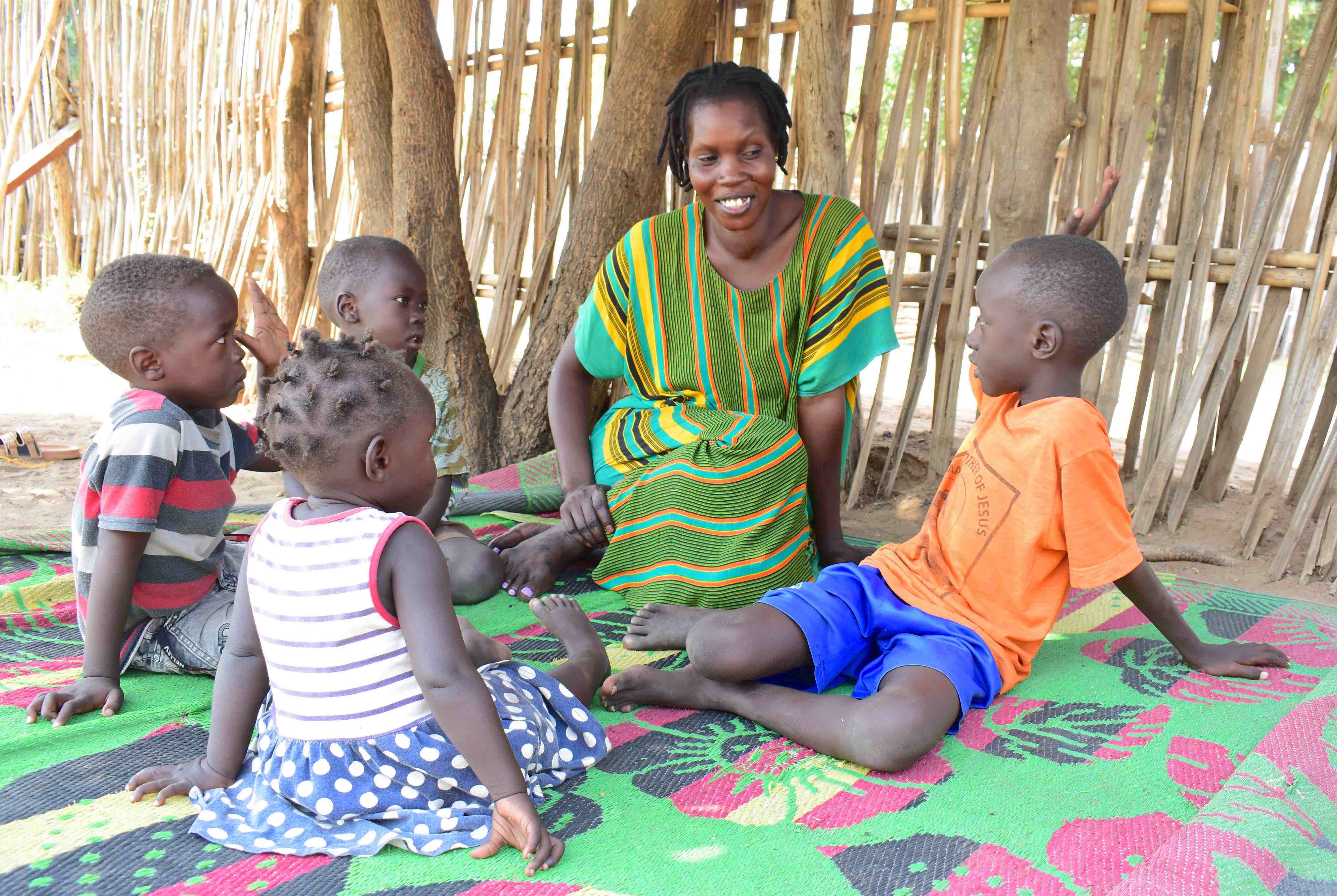Mothers thank mobilizers on effective COVID-19 vaccination campaign in South Sudan

“COVID-19 kills people. My mother tells me to wash my hands with water and soap so I cannot have the disease”, says Butrus, a 4-year-old boy in Juba.
Butrus’ mother Rebecca said she usually listens on radio about COVID-19 updates and the vaccination benefits. “I learned about the need to avoid crowded places, maintain social distance, wear face masks, hand-washing, and not spitting in public”, she adds.
The 40-year-old mother of six further says, “Before, I was made to believe that if you take the COVID-19 vaccine, you will die and later learned it is safe, so I went and got vaccinated.”

Rebecca is now an advocate and helps in the vaccination campaign in any way she can. She believes that people need to know the truth to keep South Sudan’s population protected from the pandemic.
“I advise neighbours in my community that vaccines are safe, and will protect them from severe effects in case they get infected. It will also save families from expensive hospitalization costs”, she adds.
World Vision’s CORE Group Polio Project, along with partners Support for Peace and Education Development Program (SPEDP) and Organization for People’s Empowerment and Needs (OPEN), are using community mobilizers to campaign for vaccination.

The mobilizers make rounds in 24 counties of Greater Equatoria State to increase the uptake of the COVID-19 vaccines and address the low utilization of the vaccines.
Salma, a 38-year-old mother, said she heard that people with HIV/AIDs, cancer, diabetes, and other diseases should not get vaccinated because it can kill them.
Our role is crucial in changing people’s minds. I saw the rise in the number of people getting vaccinated. This gives me the fulfilment that I was able to do my job well and keep people safe and protected.
“Some people even argue why the need for vaccines when South Sudan has warm weather and we hardly feel the impact of the virus. This misinformation resulted for few people going for vaccination”, Salma shares.
Thankfully, there are committed mobilizers like Richard who was able to share proper information with Rebecca and Salma.
“I saw him in the street talking about the virus. I took the chance to ask him questions and he gave me a clear response that removed my doubts. He encouraged me to visit the vaccination site and talk to the nurses, which I did”, Salma says.

Richard Julius works with the State Ministry of Health mobile team supported by the project. “We move from one area to another every day. The questions we often get are about the potential side effects of the vaccines after a period of two to five years”, he shares.
“We address many of these misconceptions and explain why the vaccines are safe. Importantly, we stress the need to observe preventive measures to keep the virus away. Some people share that their own churches tell them that the pandemic is not true”, Richard adds.
“Our role is crucial in changing people’s minds. I saw the rise in the number of people getting vaccinated. This gives me the fulfilment that I was able to do my job well and keep people safe and protected”, he further says.

Anthony Kisanga, CGPP Project Manager says, “Due to low education level, insufficient social mobilization and community awareness, South Sudan has experienced low COVID-19 vaccine uptake. Misconceptions and myths in communities are among other factors.”
“However, this is slowly changing. More people go for vaccination with the intensified community mobilization and awareness dispelling the wrong information about the COVID-19 vaccines”, Kisanga adds.
The CORE Group Polio Project is funded by United States Agency for International Development (USAID).

More stories on COVID-19 and World Vision's campaign with the Ministry of Health:
- Women volunteers fight vaccine hesitancy in South Sudan
- Curbing misconceptions on COVID-19 vaccinations
- World Vision lead vaccination scale-up across South Sudan
Story and photos by Jemima Tumalu, Communications Officer